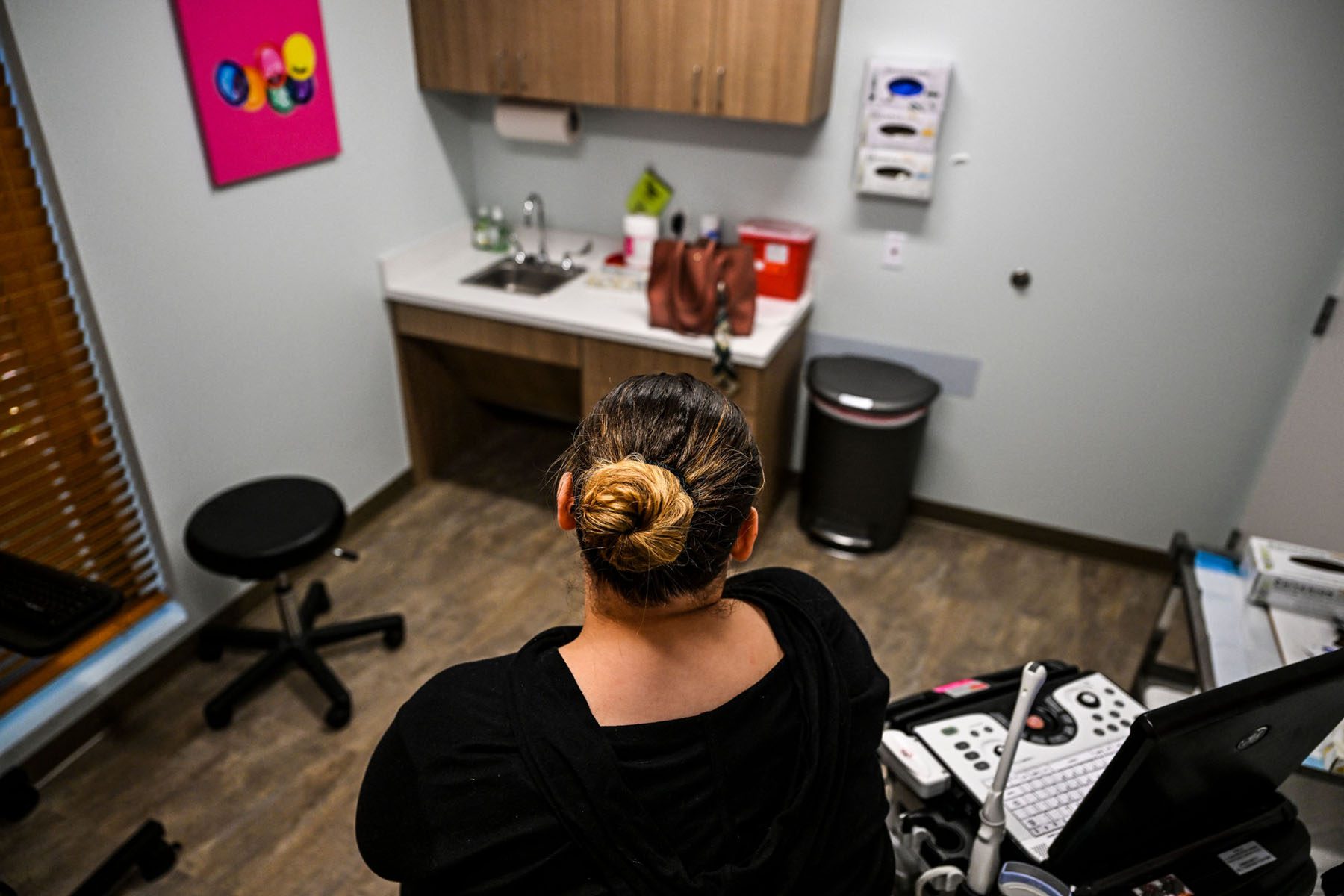We’re answering the “how” and “why” of abortion news. Subscribe to our daily newsletter.
New data from Florida shows just how much influence individual judges — almost all White men — wield in determining if minors can access abortions in the state.
In 36 states, minors are legally required to involve at least one parent before seeking an abortion, in some cases by simply notifying them and in others by obtaining explicit consent. Such laws are one of the nation’s most common forms of abortion restriction.
But in almost all of those states, young people who cannot talk to their parents about the abortion — perhaps for fear of their own safety, because their parents don’t support abortion, or because they don’t live with their parents — can go through judicial bypass. In that process, a judge agrees to override the parental involvement requirement, placing tremendous decision-making power in the hands of a few judges.
The new report, an analysis of state court records by the advocacy group Human Rights Watch (HRW), finds that close to 1 in 10 Floridians who seek a judicial bypass each year are denied. The data suggests that approval depends on where one lives. In Hillsborough County, home to Tampa, close to half of all bypass petitions were denied in 2021. In Miami-Dade and Orange Counties — home to Miami and Orlando, respectively — none were.
In Florida, minors are assigned a court-appointed lawyer to help navigate the bypass process. Judges are tasked with assessing whether a minor is “mature” enough to decide for themselves whether they can get an abortion. Per Florida law, that means considering factors such as the person’s intelligence, ability to “accept responsibility” and understanding of what an abortion entails. If a petition is turned down, minors can, in some scenarios, refile their case in the same court, or submit an appeal — though that process takes time, delaying when someone is able to get care.
The variation across Florida counties shows just how much the assessment or someone’s “maturity” is colored by a judge’s individual leanings, the HRW report argued.
“How is it that a Hillsborough County young person — that as a whole, they are immature but then you look at Miami-Dade or Orange County, and they’re more mature? It doesn’t make sense,” said Annie Jae Filkowski, policy director at Florida Alliance of Planned Parenthood Affiliates. “Your ability to access reproductive health care shouldn’t depend on the circuit court in which you reside.”
Though Florida does not track the demographic information of minors who go through the judicial bypass process, federal data from 2020 shows that about 30 percent of people in Florida who get abortions are White, compared to 37.5 percent who are Black and 29 percent who are Hispanic. That’s a stark contrast from the state’s judicial makeup, which in 2017 was more than 80 percent White, per the state bar association; barely 10 percent of all judges were women of color. (More recent data is not available.)
Research has shown that a judge’s background, training and personal beliefs can all influence whether they are willing to grant a judicial bypass.
Judicial bypass laws like Florida’s are part of a national trend, said Elizabeth Nash, who tracks state policy for the Guttmacher Institute, a think tank that studies reproductive health. These laws, common in states of all political makeups, “are designed to and have the impact of keeping young people from accessing abortion care,” Nash said.
Since 2011, Nash said, states have made parental involvement laws progressively stricter, revisiting existing statutes so that minors seeking a judicial bypass must go through their local county court — rather than any court in the state, or in some cases, family law courts. Some laws have restricted what criteria judges can even use to determine if a young person should be allowed to get an abortion.
Since those laws changed, fewer people have been able to qualify for these judge-granted exceptions. In Florida, Human Rights Watch found, the percentage of minors denied a judicial bypass has increased every time the state passed new laws refining the process.
Between 2011 and 2012, after the state passed a law requiring minors work through their local county courts, the statewide denial rate went up from 4.6 percent to 10.7. Almost a decade later, in 2020, Florida lawmakers switched from requiring that minors notify a parent about their abortion to instead requiring they get explicit consent. That year, denials increased from 9.1 percent to 13.3.
The data from Florida suggests similar patterns in other states, Nash said. Even as states pass sweeping new abortion bans, existing laws around parental involvement are making the procedure incredibly difficult for minors to obtain, regardless of whether their state allows abortion or not.
And the numbers only show one layer of difficulty in getting a bypass, advocates who have navigated the state system said.
Often, teens also aren’t able to schedule a visit with an abortion clinic before getting an approved bypass — meaning that they do not learn the nuances of how the procedure might work, and struggle to answer questions about abortion in court, noted Kristen Flynn, an attorney in West Palm Beach who volunteers to help minors who are seeking judicial bypass. About 200 minors seek a judicial bypass in Florida each year; Flynn works with maybe 15 to 40 cases annually.
One teen, she remembered, sought a bypass because she feared her father would be violent toward her if he found out she wanted an abortion. But while seeking the judge’s approval, she learned that mentioning this could trigger a mandatory reporting protocol for suspected child abuse.
“She found out and clammed up at the hearing, didn’t say what she needed to say, and was denied,” Flynn said. Eventually, Flynn was able to refile the case and win a judicial bypass, allowing the young woman to get an abortion.
Those kinds of delays — of days or even weeks — can push people further in pregnancy, forcing them in some cases to require more complicated or expensive procedures. And now, they matter even more. In Florida, abortion is illegal after 15 weeks, and clinics have reported dramatic increases in the number of out-of-state patients they see, making it far harder to get an appointment.
There are other challenges, too. In some cases, minors don’t appear aware they have been granted a court-appointed lawyer. Filkowski recalled multiple patients who called the clinic after a bypass petition was denied, and only learned while speaking to Planned Parenthood staff that she had a lawyer representing her in court. In such cases, Filkowski said, a lawyer is typically present in the court but simply does not speak during the hearing.
Some teens don’t have access to a car, which means it is harder for them to make it to the courthouse. Minors aren’t assigned court-appointed attorneys until they have filled out the state paperwork to seek a judicial bypass, even though those documents are technically considered sworn legal testimony, Flynn noted.
“You will get a situation where things weren’t explained correctly or they didn’t put the right thing [in the form],” she said. “They didn’t have an attorney to help.”







